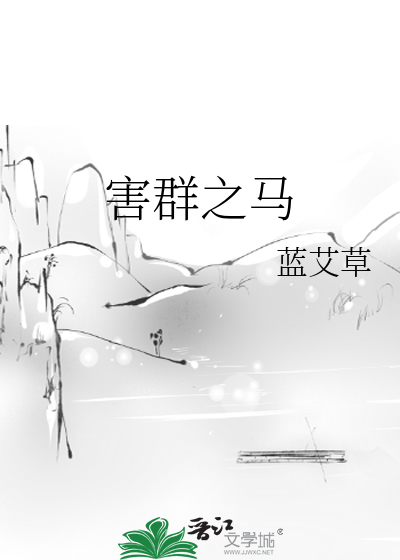Hu City Station was the starting point, and at this time, there weren’t many passengers in the hard sleeper carriage. Jiang Si quickly found her assigned berth using the information on her ticket.
She had booked a lower berth, which offered noticeably more space and comfort compared to the middle or upper berths. Jiang Si’s suitcase wasn’t too large, so she simply slid it under the bed.
After changing the sheets with the ones she had prepared in advance, the other passengers began boarding one after another, carrying their luggage. The middle and upper berths across from hers were occupied by a newlywed couple, while the upper berth above her belonged to a middle-aged man. They all seemed friendly enough.
They exchanged nods as a form of greeting.
Soon, the train departed the station right on schedule.
Jiang Si hadn’t slept well the night before and had planned to catch up on rest during the ride. But just as the train left the city limits, the carriage’s loudspeaker crackled to life.
First came several passages of revolutionary quotes, with the most important ones repeated three times.
Then, one after another, patriotic songs and excerpts from revolutionary operas blared through the speakers.
Occasionally, stern warnings interrupted the broadcast:
"Revolutionary passengers, please be advised: If you encounter any suspicious individuals or incidents, report them to the train attendants immediately."
Every announcement ended with the same forceful declaration: "Better to investigate a thousand by mistake than let one slip away!"
Perhaps due to conditioned reflex from hearing it so often, whenever this warning played, passengers would instinctively glance around, scrutinizing those nearby as if to prove their own innocence.
Under such watchful eyes, Jiang Si had no hope of sleeping.
After two agonizing hours, the train finally entered Jiacheng territory, with only twenty-some minutes left until arrival.
Just then, the loudspeaker announced that the dining car had begun serving lunch.
Jiang Si immediately scrambled out of bed. That morning, fearing motion sickness, she hadn’t dared eat the pan-fried meat buns she’d brought, settling instead for a few sips of soy milk. The boiled egg she’d had wasn’t filling, and by now, she was starving.
But hunger was secondary—she also desperately needed to use the restroom.
She’d heard that train toilets in this era were the direct-discharge type, where you could see the tracks rushing beneath you through the open hole. Not only was the ride bumpy, but the smell was indescribably foul.
So before entering, Jiang Si mentally prepared herself and even put on a sanitary mask.
But the moment she opened the toilet door, she froze in shock.
This was truly a case of "the first person’s mess becomes the next person’s misery."
Jiang Si couldn’t understand—wasn’t there a proper waste hole? How could someone manage to leave such a disaster all over the floor?
"Comrade, are you going in or not?" The passenger waiting behind her clutched his stomach impatiently.
Left with no choice, Jiang Si braced herself and stepped inside.
Thankfully, the tiny compartment had a sink. Otherwise, she might have lost her mind.
With a long line still waiting, she washed her hands quickly after finishing and hurried out.
But as she approached the dining car, she found her path blocked by passengers queuing to disembark. When she tried to retreat, she realized there was no going back.
Jiacheng was a small station, and the train would only stop for eight minutes.
In these times, everyone traveled with bulky luggage, and the train doors were narrow. Once they opened, those boarding would rush in to grab seats, while those getting off would push to exit—chaos was inevitable.
If you didn’t line up early, you might not even make it to the door in time.
Sure enough, the moment the train halted, the crowd surged forward, forcing Jiang Si along with them.
If she hadn’t grabbed the door handle at the last second, she would have been shoved right off the train!
But her relief lasted less than a second before someone slammed into her left shoulder with brutal force.
Caught off guard, Jiang Si’s forehead smacked into the door with a loud thud.
By the time she looked up, all she saw was the blurry outline of a retreating figure.
How dare he run off after hitting her without so much as an apology?
Furious, Jiang Si took three swift steps forward and yanked the man’s sleeve.
"Don’t you know how to walk? You can’t even say sorry after bumping into someone?"
The man hunched slightly, as if in a hurry. "My apologies, I didn’t notice earlier. I’m truly sorry…"
His remorse seemed genuine, and Jiang Si wasn’t actually injured.
There was nothing more to be done.
After glaring at him a moment longer, she rubbed her sore shoulder and headed straight for the dining car.
Lunch service had just begun, so there was still a good selection of meat dishes available.
The food looked decent and smelled appetizing.
"Comrade, I’ll have the sweet and sour pork ribs and a serving of spicy shredded potatoes. A small bowl of rice, please."
"Certainly. The ribs are 40 cents, the potatoes 5 cents, and the rice 4 cents. Would you like a small soda as well?"
"Sure, one soda."
"Alright, the soda is 16 cents. Your total comes to 65 cents."
Jiang Si paid, took her tray, and found an empty seat to eat.
Just as Jiang Si was enjoying her meal, two uniformed police officers suddenly sat down across from her with stern expressions.
"Excuse me, comrade. May we see your train ticket?"
Still unsettled by the announcements from the past few hours, Jiang Si was puzzled but complied, handing over her ticket.
"Are you heading to Yancheng?"
"Yes."
"What’s your purpose for going there?"
"My fiancé is stationed on Qiongzhou Island. I need to transfer in Yancheng to get there," Jiang Si answered truthfully.
By now, she realized this wasn’t a routine check—the officers seemed to be interrogating her as if she were a spy.
She quickly retrieved a letter of introduction from her bag.
"He’s a military officer, surnamed Huo, currently serving as the regimental commander of the 101st Regiment in the Fourth Division of the Naval Aviation Force."
"If you have any doubts, you can verify this with the unit."
In these times, falsely claiming to be a military family member was a serious offense. Seeing the official letter with clear black-and-white text, the officers visibly relaxed.
Then, the older officer asked, "Comrade, did a man bump into you earlier?"
They had been blocked by boarding passengers and only saw the two collide from a distance. Jiang Si had chased after the man, but they hadn’t heard what was said.
Jiang Si now guessed the man might be suspicious.
She nodded calmly. "Yes, he didn’t even apologize, so I ran after him to argue."
"Can you still remember what he looked like?"
The officer didn’t hold much hope.
Half an hour earlier, their team had already confronted this suspected spy, codenamed "West Wind."
Strangely, though four officers had seen his face, none could recall his features clearly.
Their descriptions were vague: eyes neither big nor small, lips neither thick nor thin, average height, average build—completely unremarkable, blending into a crowd unnoticed.
Jiang Si understood their frustration.
When she first saw the man, she’d been just as bewildered.
His face was utterly plain—like bland water.
But as someone who had studied art for over a decade, specializing in figure sketching, failing to capture his features felt like a blow to her pride.
Determined, she had stared at him longer, memorizing nearly ninety percent of his appearance.
"Wait a moment."
She pulled out paper and a pencil from her bag.
Before sketching, she carefully reconstructed the details in her mind.
Square jaw, sparse and faint eyebrows, narrow eyes with inner double eyelids.
A flat nose with a fleshy tip, nostrils spaced as wide as his eyes.
Thin lips with indistinct peaks, nearly blending into his warm, light wheat-colored skin.
Smooth facial contours, natural transitions from cheekbones to jawline, standard ears with slightly drooping lobes.
Height around 172 cm, black hair in a crew cut.
Even his Adam’s apple was barely noticeable.
Once she had every detail clear, her pencil flew across the paper.
Time was short—Hangcheng Station, a major hub with heavy passenger traffic, was less than two hours away.
Checking every passenger individually would be impossible.
She had to work fast.
Thirty minutes later, she handed the sketch to the officers.
The younger one’s eyes widened instantly.
"That’s him!"







